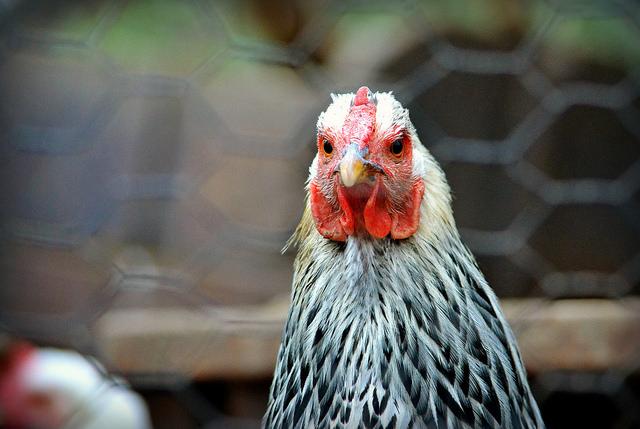As bird flu spreads in the state, there’s no need for people to flock to the doctor’s office.
Four cases of avian flu have been detected in Wisconsin in the past 10 days, causing Gov. Scott Walker to call a state of emergency to deal with the outbreak, but experts say humans have no reason to worry about getting sick.
H5N1 avian influenza virus, or “bird flu,” has affected approximately 1.2 million birds in Wisconsin across four counties, Raechelle Cline, spokesperson for the Wisconsin Department of Agriculture, Trade and Consumer Protection, said.
Keith Poulsen, diagnostic case and outreach coordinator of Wisconsin Veterinary Diagnostic Laboratory, said the virus is highly pathogenic — or capable of causing disease — among birds. The virus has a significant impact on chickens, turkeys and several other bird species, Poulsen said.
This virus is easily transmitted from farm to farm via migratory birds, Poulsen said. He said the mortality rate for birds that contract the virus is 98 to 100 percent.
But humans have less to be worried about, UW professor of veterinary medicine Christopher Olsen said. There is a specific strain of this influenza that affects humans, but the one reported in Wisconsin does not, he said.
“The virus does not pose a public health risk at this point,” Olsen said.
Poulsen said although the virus is not a threat to humans, people should be aware of the risk it poses to the poultry they consume. Misconceptions about bird flu can cause mass hysteria, Poulsen said.
“Educate yourself, your families. Understand what is going on,” Poulsen said.
There is a wide array of influenza viruses and they vary according to the proteins on the surface of the virus, Olsen said.
Cline said although the virus is highly destructive in avian populations, poultry at the grocery store does not pose a threat to humans.
“Any poultry products available in the market place is safe to eat as long as it is cooked at the proper temperature and handled properly,” Cline said.
Chad Gregory, president and CEO of United Egg Producers, said in a statement, U.S. egg farmers have significantly increased biosecurity measures on their farms to protect their flocks from the virus.
Even though the threat to public safety is minimal, the state has taken significant steps to protect Wisconsin’s poultry industry. Walker has tapped in the National Guard to help clean and disinfect the large trucks at Jefferson County site, where the virus was first seen, Cline said. According to state law, the governor must call a state of emergency if the National Guard is employed, Cline said.
Currently, there are five different responses in five different areas, Cline said.
The Animal and Plant Health Inspection Service division of the United States Department of Agriculture website has provided a list of measures that people can adhere to in order to protect smaller flocks.
Poulsen said although the outbreak poses a serious threat, state and federal officials are well equipped to handle it.
“Influenza cases happen regularly and the United States Department of Agriculture and Wisconsin Veterinary Diagnostic Monitoring Lab deal with such outbreaks on a regular basis,” Poulsen said.














